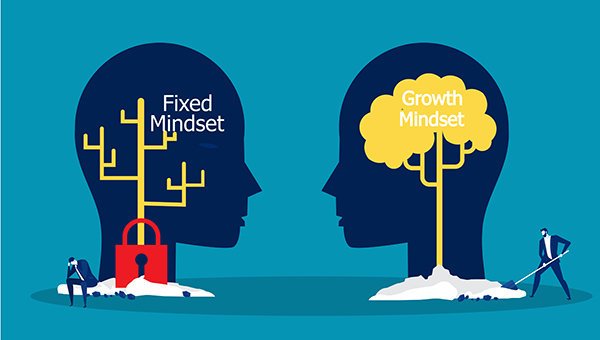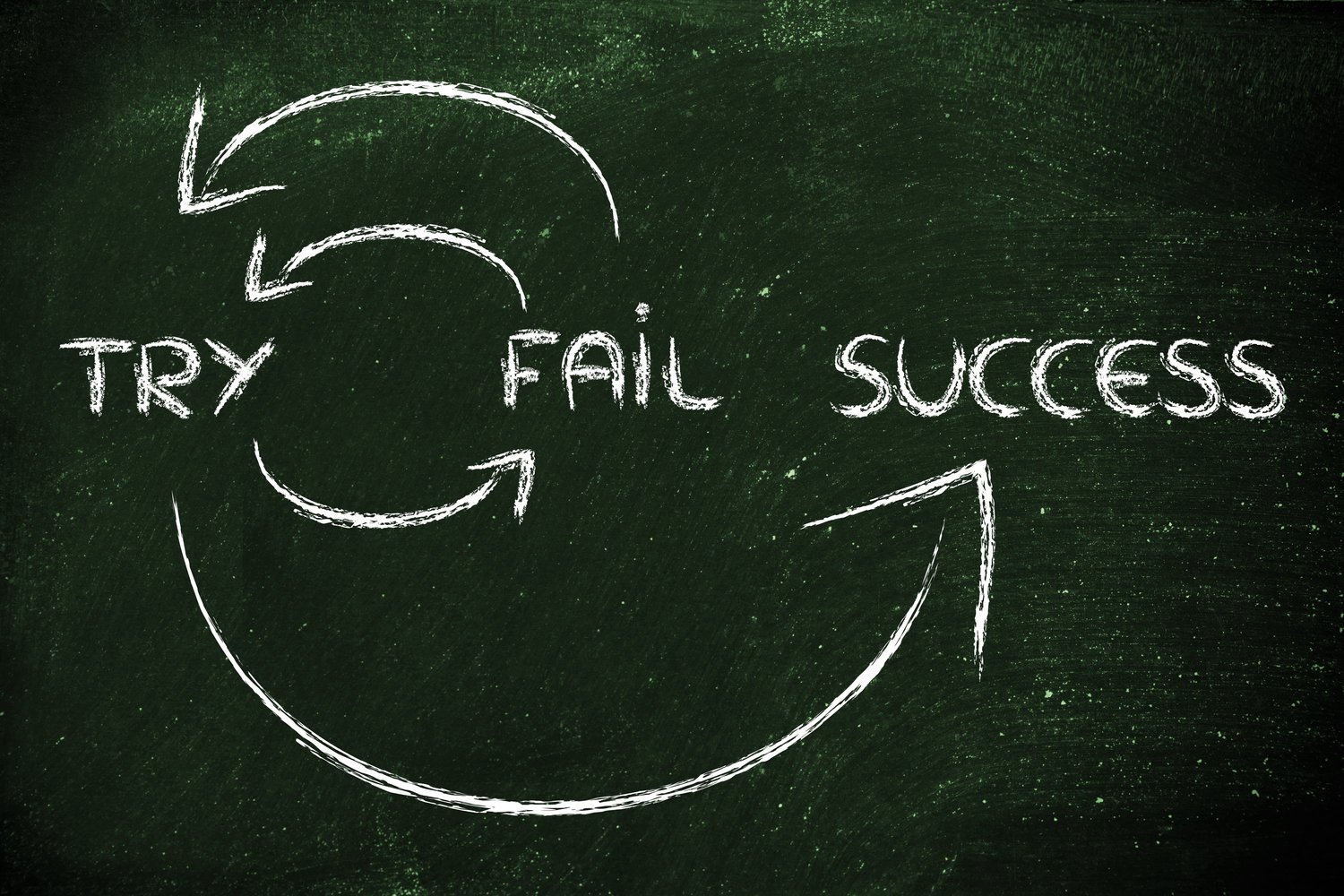Achieving success isn’t just about having the right skills or the perfect opportunity—it’s about cultivating the right mindset. A success mindset is the set of attitudes, beliefs, and practices that drive you toward your goals, no matter the obstacles. It’s what separates those who persist in the face of challenges from those who give up too soon. In this article, we’ll dive deep into actionable tips that will help you develop and strengthen your success mindset, setting you on a path toward your personal and professional goals.
Understanding the Power of Mindset

Fixed vs. Growth Mindset
Your mindset is the lens through which you view the world, and it can either propel you forward or hold you back. Psychologist Carol Dweck’s research introduced the concepts of a fixed mindset and a growth mindset.
- A fixed mindset believes that abilities are static and unchangeable. If you think you’re born with a certain level of intelligence or talent, you’re more likely to avoid challenges and give up easily.
- On the other hand, a growth mindset embraces challenges and sees failures as opportunities to learn and grow. With this mindset, you believe your abilities can be developed through hard work and perseverance.
How Your Mindset Shapes Your Reality
Your mindset doesn’t just influence your thoughts—it shapes your entire reality. If you believe you can achieve something, you’re more likely to take the necessary steps to make it happen. Conversely, if you doubt your capabilities, you may never take the first step. A success mindset is about adopting a growth-oriented outlook and believing in your potential to overcome any hurdle.
The Role of Self-Belief

Developing Unshakable Confidence
Confidence isn’t something you’re born with—it’s something you build. To develop unshakable confidence, start by recognizing your strengths and achievements. Celebrate your wins, no matter how small they are, and use them as a foundation for future success.
Overcoming Self-Doubt
Self-doubt can be a major roadblock on your journey to success. It’s that nagging voice that tells you you’re not good enough or that you’ll fail. To overcome self-doubt, challenge these negative thoughts by reflecting on past successes and reminding yourself that you are capable of achieving great things. Replace self-doubt with self-affirming statements and focus on the progress you’ve made rather than the distance left to cover.
Embracing Failure as a Stepping Stone

The Value of Learning from Mistakes
Failure is often seen as a negative outcome, but in reality, it’s a powerful learning tool. When you fail, you gain valuable insights into what didn’t work, which helps you make better decisions in the future. Embrace failure as part of the process and understand that every mistake brings you one step closer to success.
How to Bounce Back Stronger
Resilience is the key to bouncing back from failure. Instead of dwelling on what went wrong, analyze the situation, identify what you can improve, and take action. The quicker you can get back on your feet, the more momentum you’ll build toward your goals.
Setting Clear and Achievable Goals
The Importance of Goal Setting
Without clear goals, you’re like a ship without a compass—aimless and drifting. Goal setting gives you direction and purpose, helping you focus your efforts on what truly matters. It’s the first step in turning your dreams into reality.
SMART Goals: Specific, Measurable, Achievable, Relevant, Time-Bound
To maximize your chances of success, your goals should be SMART:
- Specific: Clearly define what you want to achieve.
- Measurable: Set criteria to track your progress.
- Achievable: Ensure your goals are realistic and attainable.
- Relevant: Align your goals with your broader objectives.
- Time-Bound: Set a deadline to create a sense of urgency.
The Power of Positive Thinking
How Positive Affirmations Can Change Your Life
Your thoughts have immense power over your actions. Positive affirmations are statements that reinforce your self-belief and encourage you to stay focused on your goals. By repeating affirmations daily, you can rewire your brain to focus on possibilities rather than limitations.
Surrounding Yourself with Positivity
The environment you create around yourself plays a significant role in shaping your mindset. Surround yourself with people who uplift and inspire you, and engage in activities that fill you with energy and optimism. A positive environment fosters a positive mindset, making it easier to stay motivated and focused on your goals.
Maintaining Focus and Discipline
Avoiding Distractions
In a world full of distractions, maintaining focus is a superpower. Identify your biggest distractions—whether it’s social media, TV, or multitasking—and create strategies to minimize them. Set specific times for breaks and stick to them, allowing you to stay focused during work periods.
Building Daily Habits for Success
Success isn’t achieved overnight; it’s the result of consistent, daily effort. Build habits that align with your goals, such as regular exercise, reading, or journaling. These small, daily actions compound over time, leading to significant progress and achievements.
Taking Consistent Action
The Importance of Persistence
Consistency is the key to success. It’s not about doing things perfectly but about doing them regularly. Persistence is what keeps you going when the initial excitement wears off, and challenges arise. Keep pushing forward, even when it feels difficult, and you’ll eventually see results.
Small Steps Lead to Big Results
Big goals can feel overwhelming, but breaking them down into smaller, manageable tasks makes them achievable. Focus on taking one small step at a time, and before you know it, you’ll have made significant progress.
Developing Resilience
How to Handle Setbacks
Setbacks are inevitable on the road to success, but how you handle them determines your outcome. Instead of letting setbacks discourage you, view them as opportunities to learn and grow. Resilience is about staying strong in the face of adversity and continuing to move forward, no matter what.
Building Mental Toughness
Mental toughness is the ability to stay focused and driven, even when things get tough. It involves controlling your emotions, staying calm under pressure, and remaining committed to your goals. To build mental toughness, practice mindfulness, develop a positive inner dialogue, and focus on what you can control.
Cultivating a Growth-Oriented Environment
Surrounding Yourself with Like-Minded People
The people you spend time with can have a significant impact on your mindset. Surround yourself with like-minded individuals who share your goals and values. These people will support and motivate you, pushing you to be the best version of yourself.
The Influence of Mentors and Role Models
Mentors and role models are invaluable resources on your journey to success. They offer guidance, share their experiences, and provide insights that can help you navigate
Continuous Learning and Self-Improvement
The Importance of Lifelong Learning
In today’s rapidly changing world, continuous learning is essential for success. Adopting a mindset of lifelong learning means constantly seeking new knowledge, skills, and experiences that enhance your personal and professional growth.
Adopting a Student-for-Life Mentality
A student-for-life mentality means always being open to learning, regardless of your age or stage in life. It’s about staying curious, asking questions, and never settling for what you already know. This mindset keeps you adaptable and competitive in any field.
Visualization and Affirmations
How Visualization Drives Success
Visualization is a powerful tool that helps you mentally rehearse success. By vividly imagining yourself achieving your goals, you create a roadmap in your mind that guides your actions. This practice not only boosts your confidence but also helps you stay focused and motivated.
Crafting Powerful Affirmations
Affirmations are positive statements that help you overcome negative thoughts and self-doubt. Craft affirmations that resonate with your goals and repeat them daily. Over time, these affirmations will become ingrained in your mindset, driving you to take the necessary actions to achieve success.
Time Management and Prioritization
The 80/20 Rule: Focus on What Matters Most
The 80/20 rule (also known as the Pareto Principle) states that 80% of your results come from 20% of your efforts. Focus on the tasks that yield the highest impact and eliminate or delegate the rest. This approach helps you maximize your productivity and ensures you’re working on what truly matters.
Time Blocking for Maximum Efficiency
Time blocking is a time management technique that involves scheduling specific blocks of time for different tasks. By dedicating uninterrupted time to each task, you can work more efficiently and avoid the stress of multitasking.
Gratitude and Its Impact on Success
The Power of Gratitude in Shaping Your Mindset
Gratitude is a powerful practice that shifts your focus from what you lack to what you have. By regularly practicing gratitude, you cultivate a positive mindset that attracts more success into your life. It helps you appreciate your progress and motivates you to keep moving forward.
Practicing Daily Gratitude
Incorporate gratitude into your daily routine by taking a few moments each day to reflect on what you’re thankful for. This simple practice can dramatically improve your mood, increase your resilience, and help you maintain a positive outlook on life.
Conclusion
A success mindset is not something you’re born with; it’s something you cultivate through intentional practice and dedication. By adopting the tips and strategies outlined in this article, you can develop a mindset that drives you toward your goals, no matter the challenges you face. Remember, success is a journey, not a destination, and your mindset is the vehicle that will take you there.





